- Battery Manufacturing Equipment
- Battery Laboratory Assembly Equipment
- Battery Pack Assembly Equipment
- Sodium Ion Battery Manufacturing Equipment
- Solid State Cell Production Line
- Dry Electrode Assembly Equipment
- Supercapacitor Assembly Equipment
- Perovskite Solar Cell Lab Equipment
- Li ion Battery Materials
- Ni / Al / Cu Metal Foam
- Customized Electrode
- Cathode Active Materials
- Anode Active Materials
- Coin Cell Parts
- Lithium Chip
- Cylindrical Cell Parts
- Battery Current Collectors
- Battery Conductive Materials
- Electrolyte
- Battery Binder
- Separator and Tape
- Aluminum Laminate Film
- Nickel Strip/Foil
- Battery Tabs
- Graphene Materials
- Cu / Al / Ni / Stainless steel Foil
- Battery Laboratory Equipment
- Li ion Battery Tester
- Battery Safety Tester
- Material Characterization Tester
- Rolling Press Machine
- Electrode Mixer
- Coin Cell Crimping Machine
- Coin Cell Electrode Disc Punching
- Pouch Cell Sealing Machine
- Pouch Cell Stacking Machine
- Pouch Cell Forming Machine
- Pouch Cell Ultrasonic Welder
- Pouch Cell Electrode Die Cutter
- Cylinder Cell Sealing Machine
- Cylinder Cell Grooving Machine
- Electrode Slitting Machine
- Cylinder Cell Winding Machine
- Cylinder Cell Spot Welding Machine
- Electrolyte Filling
- Type Test Cell
- Other Battery Making Machine
- NMP Solvent Treatment System
- Vacuum Glove Box
- Coating Machine
- Lab Furnaces
- Ball Mill
- Laboratory Press
- Laboratory Equipment
- Press Equipment
- 2023-11-29
A Pouch Cell manufacturing Plant refers to a facility or setup specifically designed for the research, development, and production of prismatic cells, which are a type of rechargeable battery. Prismatic cells are characterized by their flat, rectangular or square shape, offering a different form factor compared to cylindrical cells. Here are key aspects associated with a prismatic cell laboratory plant:
Research and Development:
The laboratory plant serves as a hub for research and development activities related to prismatic cell technology. Scientists and engineers may conduct experiments, analyze materials, and explore innovations to enhance the performance, efficiency, and safety of prismatic cells.
Cell Design and Prototyping:
Engineers within the facility work on designing and prototyping prismatic cells. This involves creating and testing various cell configurations, electrode materials, electrolytes, and separator technologies to optimize the cell's overall performance.
Cell Manufacturing Processes:
The plant includes equipment and processes for manufacturing prismatic cells at a laboratory scale. This may involve coating electrodes, assembling cell components, and testing small batches of cells for performance and quality.
Quality Control:
Rigorous quality control measures are implemented to ensure that prismatic cells meet specific standards and specifications. This includes testing for electrical performance, cycle life, safety, and consistency in manufacturing.
Materials Testing:
The Pouch Cell Production line conducts tests on different materials used in prismatic cell construction, such as cathode and anode materials, electrolytes, and separators. Material testing is crucial for understanding and optimizing the performance and longevity of the cells.
Safety Testing:
Safety testing equipment is utilized to assess the response of prismatic cells to various stress conditions, such as temperature extremes, overcharging, and short circuits. This helps in identifying potential safety risks and developing strategies to mitigate them.
Scale-Up Studies:
Depending on the goals of the facility, there may be a focus on scale-up studies, where successful laboratory-scale processes are adapted for larger-scale production. This involves transitioning from small-scale prototypes to production-scale prismatic cells.
Environmental Testing:
Prismatic cells are subjected to environmental testing to evaluate their performance under different temperature and humidity conditions. This ensures that the cells can operate reliably in a variety of real-world scenarios.
Collaboration and Innovation:
The Pouch Cell fabrication Plant may serve as a collaborative space, fostering partnerships with academic institutions, industry collaborators, and other research organizations. This collaborative environment encourages the exchange of ideas and accelerates innovations in prismatic cell technology.
Regulatory Compliance:
The plant adheres to industry standards and regulatory requirements governing the production and testing of batteries. Compliance with these standards is essential for ensuring the safety and reliability of prismatic cells.
In summary, a Prismatic Cell Laboratory Plant is a specialized facility focused on the research, development, and production of prismatic cells. It plays a crucial role in advancing battery technology, optimizing cell design, and ensuring the quality and safety of prismatic cells for various applications.
-
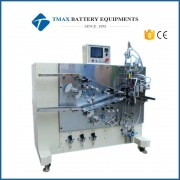 Automatic Cylinderical Battery Electrode Winding Machine
Read More
Automatic Cylinderical Battery Electrode Winding Machine
Read More
-
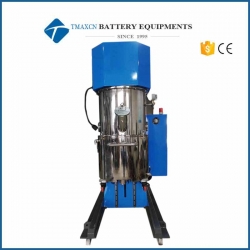 100-200L Double Planetary Vacuum Mixing Machine for Lithium Battery Slurry
Read More
100-200L Double Planetary Vacuum Mixing Machine for Lithium Battery Slurry
Read More
-
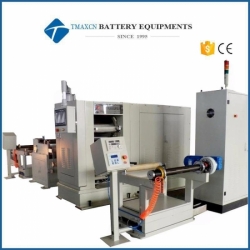 Large Heating Roller Press Machine Calender For Li ion Battery Production Line
Read More
Large Heating Roller Press Machine Calender For Li ion Battery Production Line
Read More
-
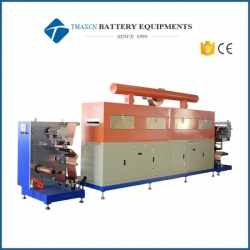 Large 3 Rollers Battery Electrode Film Intermittent Coating Machine for Pilot Production Line
Read More
Large 3 Rollers Battery Electrode Film Intermittent Coating Machine for Pilot Production Line
Read More
-
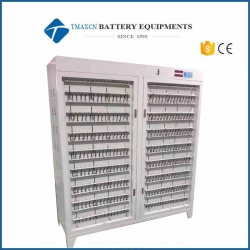 512 Channel 5V3A Battery Grading Machine/Battery Charge Discharge Machine Tester
Read More
512 Channel 5V3A Battery Grading Machine/Battery Charge Discharge Machine Tester
Read More
 English▼
English▼




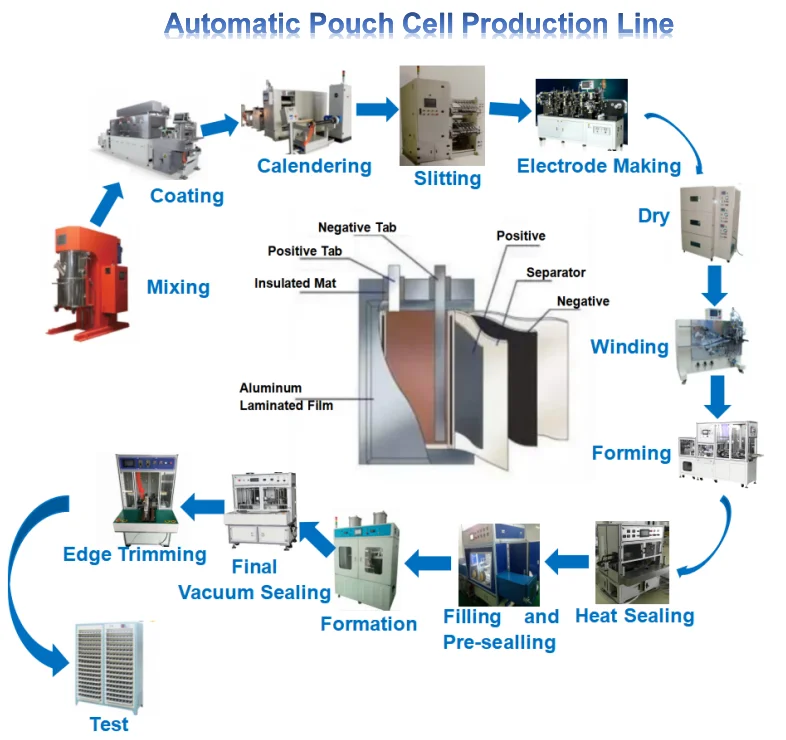
 David@battery-equipments.com
David@battery-equipments.com

